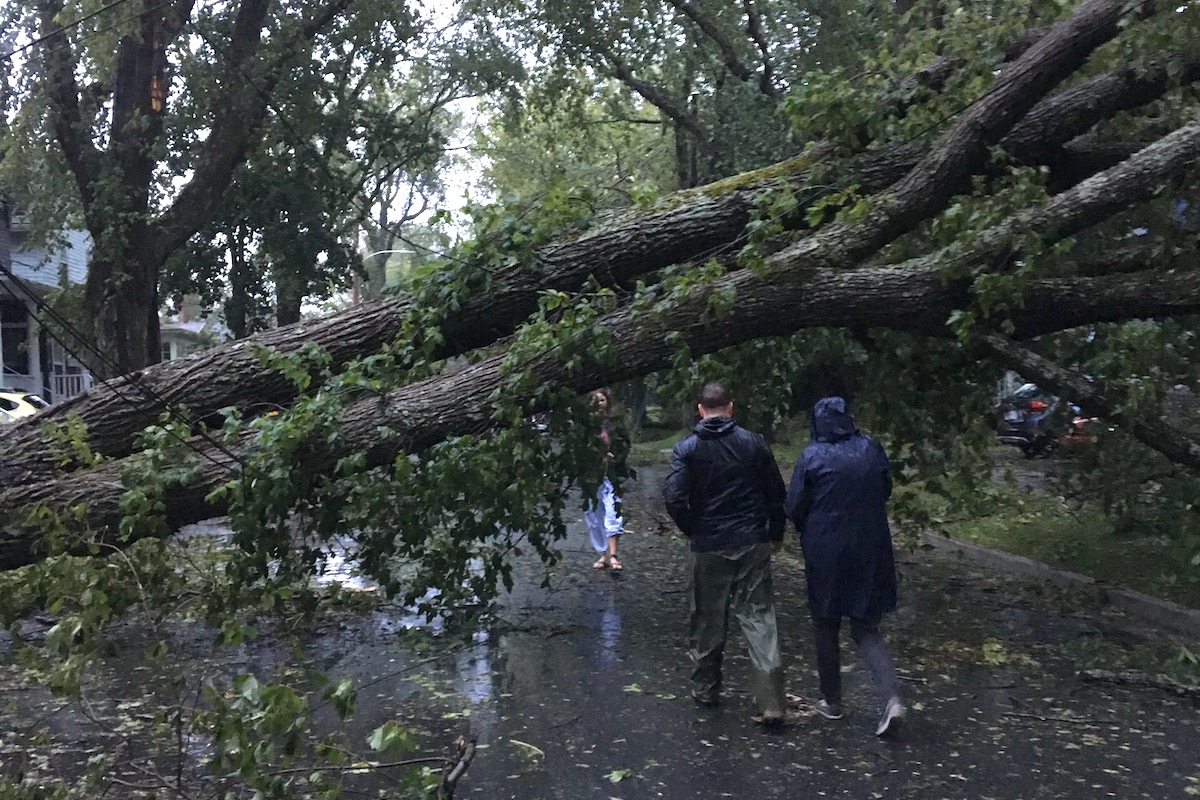This article was updated in September, 2022.
Living in an area that’s prone to hurricanes, thunderstorms, and snowstorms means there’s always a high possibility that you’ll lose power. While it’s usually only for a short time, in some cases it can last many hours or even days. Being prepared before and during a power outage is key to making the experience much more tolerable.
Stay up to date
You'll want to keep informed on a storm's progress before it hits and during the craziness, as well as expected times when you might get your power back, so make sure you're checking out reliable news outlets and organizations like Environment Canada and Nova Scotia Power. You'll also want to know what's happening with classes at Dal (has campus been closed?), so download the DalSAFE and Dal Mobile apps on your phone to get updates. You can also subscribe to get text alerts.
Charge all your devices ahead of time and use them sparingly
Charge your phone, laptop, iPad, iPod, etc. BEFORE you lose power and use them as little as possible when you have no power. You might be without power for a long time, so it’s a good opportunity to unplug. I invested in a power bank just before the storm, and it was a great idea. It allowed me to keep up to date on power restoration times and the current weather.
Keep your fridge and freezer closed
Once you’re without power, you should keep your fridge and freezer closed at all costs. By not opening them you preserve whatever cold air is still inside, which can prolong the life of your food for some time. As a general guideline, a closed fridge will keep food cold for four hours, and a closed freezer will keep food cold for 48 hours. To extend my fridge’s cold time, I put ice packs by the main items like milk, cheese, and yogurt. In the end, I only lost a half carton of milk after three days without power.
Unplug everything you can
This includes TVs, printers, lamps, microwaves, computers, alarm clocks, and similar items. This is to protect them from a power surge that could damage them when your power is reconnected. Since you won’t have anything plugged in, make sure you test your light switches every so often. I had power for almost two hours without realizing it.
Fill jugs and water bottles
Depending on where you live and how severe the storm seems to be, you may want to keep a few bottles of water on hand. A general rule of thumb is about two gallons of water per person per day for at least three days. Fill up reusable water bottles and any rinsed-out plastic bottles you have, and keep them in a safe place. It’s also not a bad idea to fill your bathtub up in case you lose water too.
Have entertainment
Chances are you’ll be without power for at least a few hours, so have a book, puzzle, or hobby like knitting handy to keep yourself busy. You can also grab board games or a deck of cards to play with friends or roommates. A great choice if you have the board and a deck of cards is cribbage.
When all else fails, sleep
If the power goes out at night and the storm doesn’t seem too bad, do what I do and hit the hay early. It’ll keep you from getting bored and help you catch up on some desperately needed zzz’s.
Have alternative lighting and plenty of spare batteries
Have lanterns, flashlights, glow sticks, and candles on hand with plenty of batteries and matches. These will definitely come in handy when it gets dark and there is next to no light in and around your home, especially if you live in an apartment with windows only on one side. Just remember to blow out the candles whenever you leave the room they’re in!
Have plenty of non-perishable food handy and a backup way to cook it
Make sure you have lots of non-perishables like canned fruit, canned vegetables, canned fish, canned pasta, crackers, granola bars, energy bars, and Jell-O. Try to have a good variety of foods so you don’t have to eat crackers and PB and J’s for three days like me and my brother did. If you can, it’s a good idea to have a small camp stove for emergencies and extended outages, especially if you live in an area that’s further from the city centre (as I learned after Hurricane Dorian). And don’t forget your storm chips and snacks!

